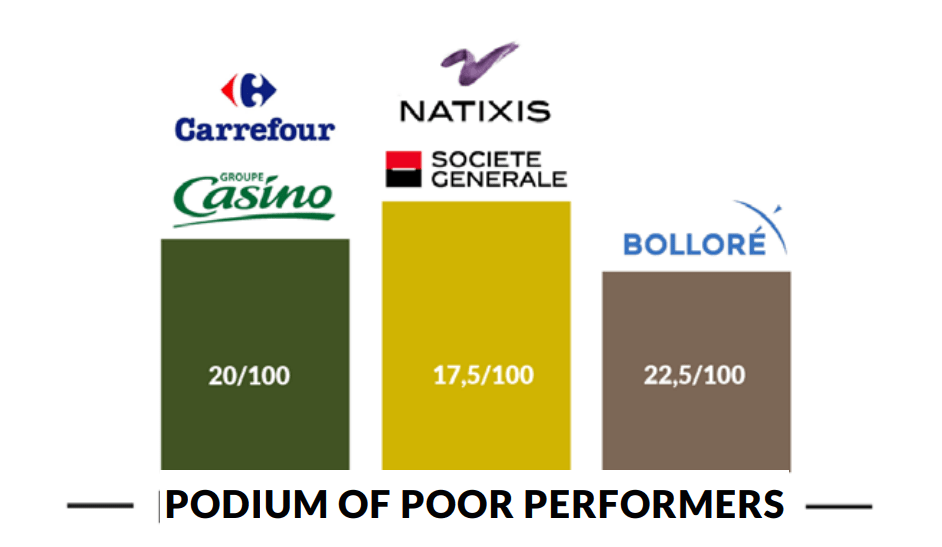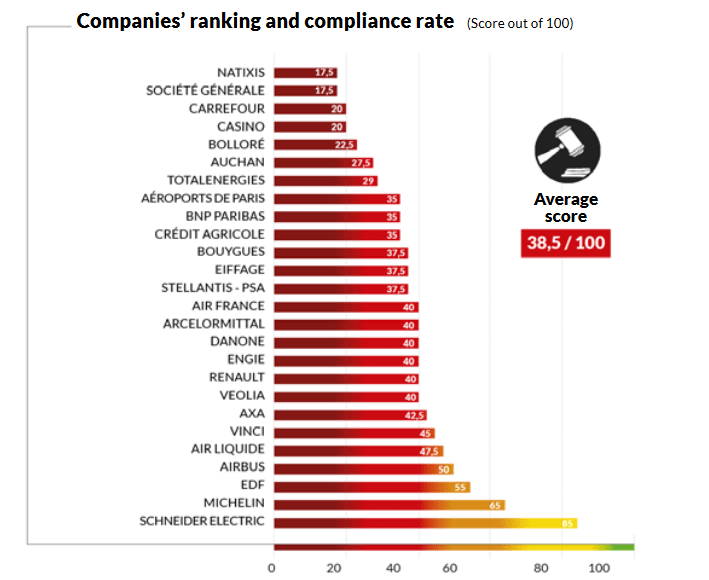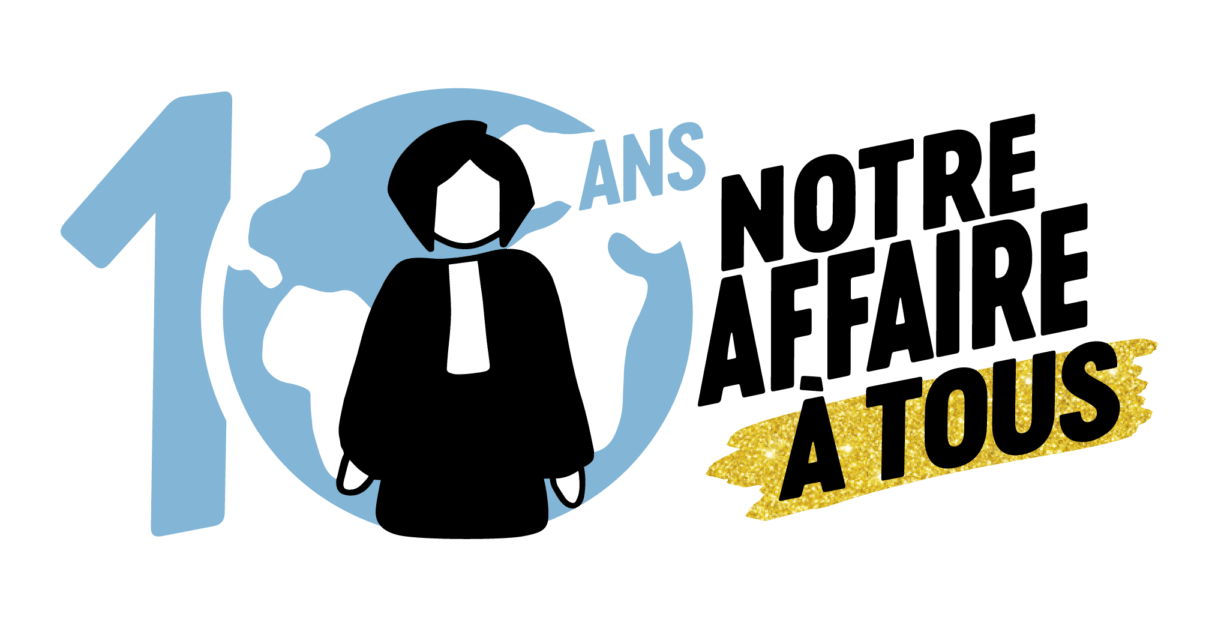On Monday 12 June, Notre Affaire à Tous published its fourth 2023 edition of the Multinational Climate Vigilance Benchmark, which scrutinises the climate vigilance measures of 26 leading French companies in high-emission sectors.

Since the French Corporate Duty Vigilance Law of 27 March 2017, large French companies must adopt a due diligence plan to identify and prevent grave risks of human rights and environmental abuses, including those related to climate. Just as States can be attacked and condemned for climate inaction (like the French State in the Grande-Synthe and « Affaire du Siècle » cases), large companies also face legal and liability risks in this area (1).
This year, Notre Affaire À Tous is publishing its fourth consecutive annual report on climate vigilance, analysing the climate measures of 26 French multinationals that are among the biggest greenhouse gas (GHG) emitters.
Lessons from the 2023 Benchmark
In 2023, three years after the first edition of the Benchmark, almost all of France’s highest emitting multinationals now recognise that the duty of care applies to the climate (2). However, none of the companies analysed is able to demonstrate compliance with our climate vigilance criteria, which assess the transparency of companies and the credibility of their alignment with the Paris Agreement.
While commitments to align with the Paris Agreement are multiplying, none of the announcements is yet backed up by sufficiently credible concrete measures. More specifically, the climate targets publicly announced by the companies analysed would only enable them to reduce their emissions by 20% by 2030 compared with 2019, at best. However, these targets are seriously lacking in credibility, and there is still a significant gap with the target of -50% emissions by 2030, corresponding to the 1.5°C objective of the Paris Agreement.
More generally, French multinationals are still seriously speculating with the climate: they are developing uncertain decarbonisation technologies, making emission reductions dependent on regulations and state aid, while at the same time engaging in anti-climate lobbying. To justify their actions, many of them continue to try to limit their individual responsibilities by referring to collective responsibility and the global nature of global warming. These positions run counter to the obligations of vigilance to which they are individually bound. The manifest failings of Natixis, Société Générale, Carrefour, Casino, Bolloré, Auchan, TotalEnergies, Aéroport de Paris and BNP Paribas are particularly worrying in this respect.

With regard to the transparency of companies’ direct and indirect emissions, which is necessary in order to identify the levers for decarbonisation and the extent of each company’s individual responsibility, significant progress is still required in order to trace emissions accurately (particularly concerning “scope 3” emissions). We estimate that the 26 multinationals have the power to influence more than 10% of global emissions.
These results show that the draft European directive on corporate sustainability due diligence (CSDD), whose version in the European Parliament aims to explicitly include requirements to identify emissions and align with the 1.5°C objective, is necessary to clear up certain debates of principle.
Jérémie Suissa, General Delegate of Notre Affaire A Tous, concludes: “This year, we are once again seeing companies treating the duty of care as a ‘box to tick’ rather than as a lever for transforming their business models. As long as they fail to properly track their emissions, recognise their individual obligations and put in place measures to limit global warming to 1.5°C, they will continue to expose themselves to the risk of litigation.”

References
[1] Beyond the law on duty of vigilance, all public and private persons, and in particular large companies, must be prudent and vigilant in environmental matters and must also prevent ecological damage.
[2] Veolia is the only company to consider that the climate « does not fall within the scope of the law on the duty of vigilance » (Veolia, Plan de vigilance 2022, p. 11).

